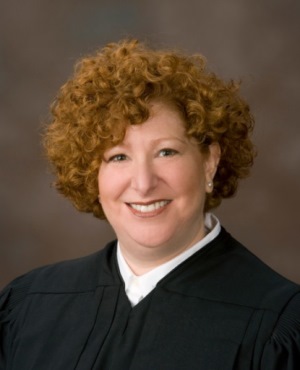The Kansas Supreme Court today affirmed the Wyandotte County District Court’s denial of Jerome Cheeks’ motion seeking postconviction DNA testing.
The district court had denied the motion on remand from the Supreme Court.
Cheeks was found guilty by a jury in 1993 of the second-degree murder of his wife. His wife had been assaulted and beaten to death. Cheeks was sentenced to 15 years to life. By the time the district court was hearing the remanded case from the Supreme Court the first time, he had been released from prison.
Cheeks had sought postconviction DNA testing in a motion filed in 2009, according to court documents. The state statute on DNA testing authorizes person who were convicted of first-degree murder or rape to petition for DNA testing, if they meet other eligibility factors in the law.
The district court rejected Cheeks’ motion because he was not convicted of first-degree murder or rape; he was convicted of second-degree murder.
Cheeks’ attorney argued the law of the case doctrine and the mandate rule required the district court to grant his motion based on the Supreme Court’s ruling in his prior appeal. In that prior appeal, the 14th Amendment equal protection clause was cited.
The Supreme Court held the law of the case doctrine did not compel the district court to grant the motion, as the Supreme Court had issued an intervening contrary decision regarding the applicable law, and the Supreme Court’s decision from Cheeks’ prior appeal is now clearly erroneous, according to today’s decision.
The earlier Supreme Court decision on the Cheeks case stated that he was similarly situated to defendants convicted of first-degree murder. In 2019, the Kansas Supreme Court decided State vs. LaPointe, which overruled the first Cheeks decision.
Today the Supreme Court stated, in a decision written by Justice Keynen Wall Jr., “there can be no dispute that LaPointe is binding precedent, and it overrules Cheeks I. Thus, it would be futile to reverse and remand this matter to the district court for failing to adhere to prior appellate mandates when LaPointe ineveitably controls the ultimate disposition of Cheeks’ motion on remand under K.S.A. 21-2512. We therefore affirm the district court’s denial of Cheeks’ motion for postconviction DNA testing.”
Justice Marla Luckert, joined by Justice Evelyn Wilson, dissented from the majority ruling today. They stated the narrow holding from Cheeks’ prior appeal remains good law and that Cheeks should remain eligible for DNA testing if he satisfies the remaining statutory requirements.
Today’s decision is online at
https://www.kscourts.org/KSCourts/media/KsCourts/Opinions/122621.pdf?ext=.pdf.

